
The Geneva Agreements and the contributions of people-to-people diplomacy
Latest
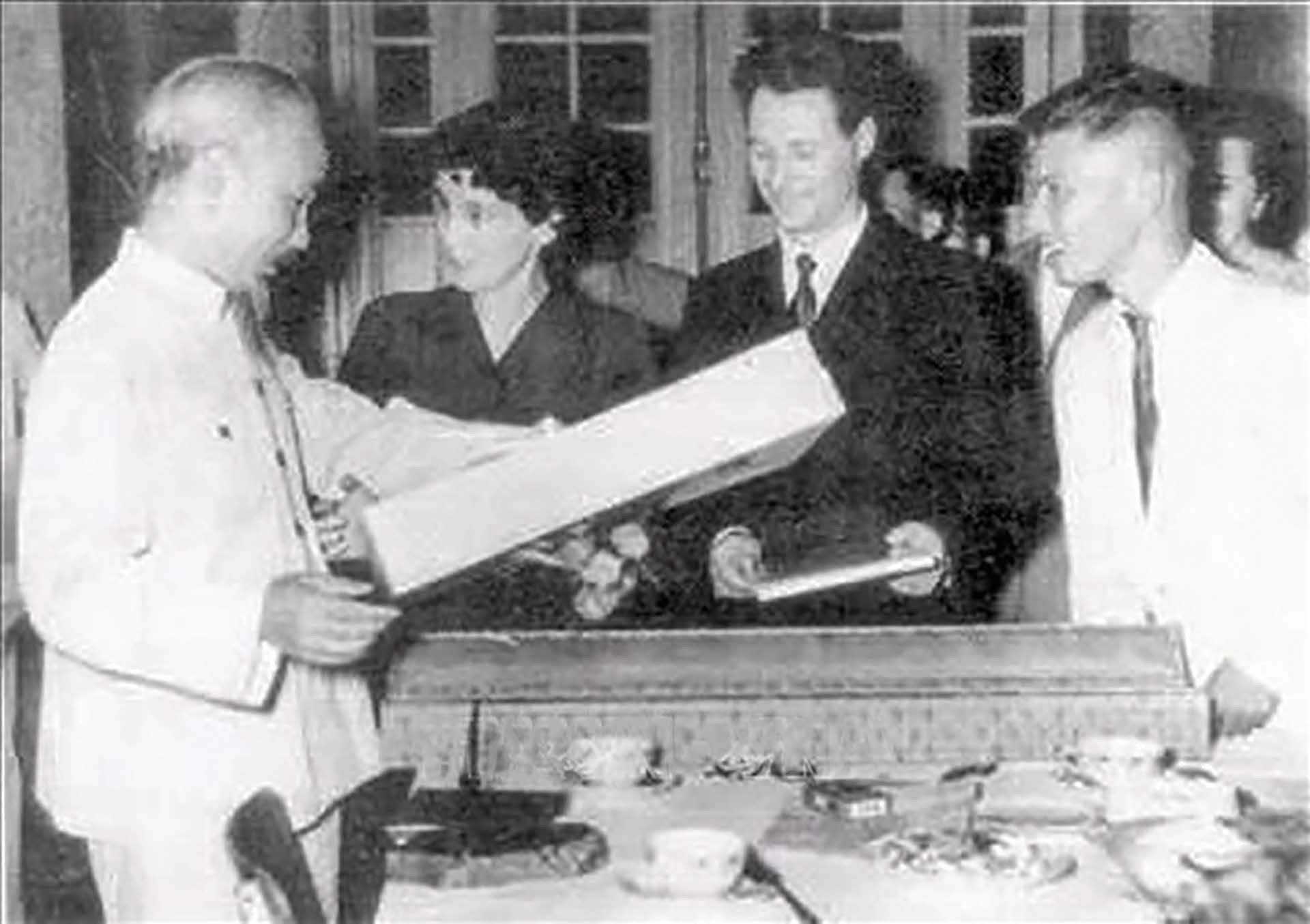 |
| President Ho Chi Minh received Ms. Raymonde Dien and Mr. Henri Martin from the French Communist Youth Union, who visited Vietnam, Hanoi, in November 1956. (Source: VNA) |
Achieving such great success was not merely the efforts of the negotiation delegation led by Pham Van Dong after 75 days of 31 meeting sessions but also the concerted victory of the entire Party, the people, and the armed forces of Vietnam. It was the triumph of profound patriotism, the longing for independence, freedom, and peace that have been nurtured through the millennia of our national history. It was the victory of the revolutionary path, the correct foreign policy of our Party and President Ho Chi Minh. It was the result of a nine-year arduous struggle with countless hardships and sacrifices of our troops and people.
The broad international people’s support for Vietnam
Before the success of the August Revolution, Vietnam received immense solidarity and support from people worldwide, especially from the international communist community, communist parties, and workers of various countries, as well as global democratic organizations, peace movements, and anti-war movements in numerous nations.
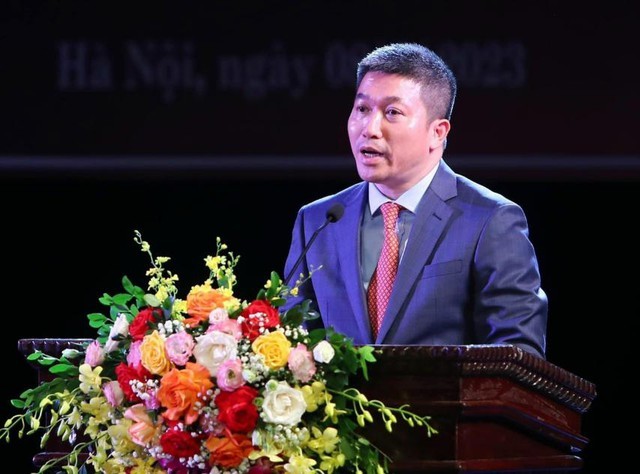 |
| Phan Anh Son, President of the Vietnam Union of Friendship Organizations. |
Within the global people’s front of supporting and uniting with Vietnam, the people of socialist countries, especially the Soviet Union and China, are the core forces, providing strong moral and political support, as well as significant and invaluable material assistance.
Peace organizations and global democratic organizations (such as labor unions, organizations of women, youths, students, lawyers, and so on) organized a myriad of solidarity activities and passed many resolutions supporting our people’s struggle against French colonialism. In 1950, the second Congress of the World Peace Council convened in Warsaw, Poland, and the Council issued a resolution supporting the Vietnamese people’s resistance to war against the French colonialists.
The third Congress of the World Federation of Trade Unions, hosted in October 1953 in Vienna (Austria), decided to designate December 19, 1953, as “Solidarity Day with the Brave Vietnamese People and Struggle to End the War of Aggression in Vietnam.” Many protests, rallies, and international conferences organized by peace and democratic forces truly demonstrated the support for our people.
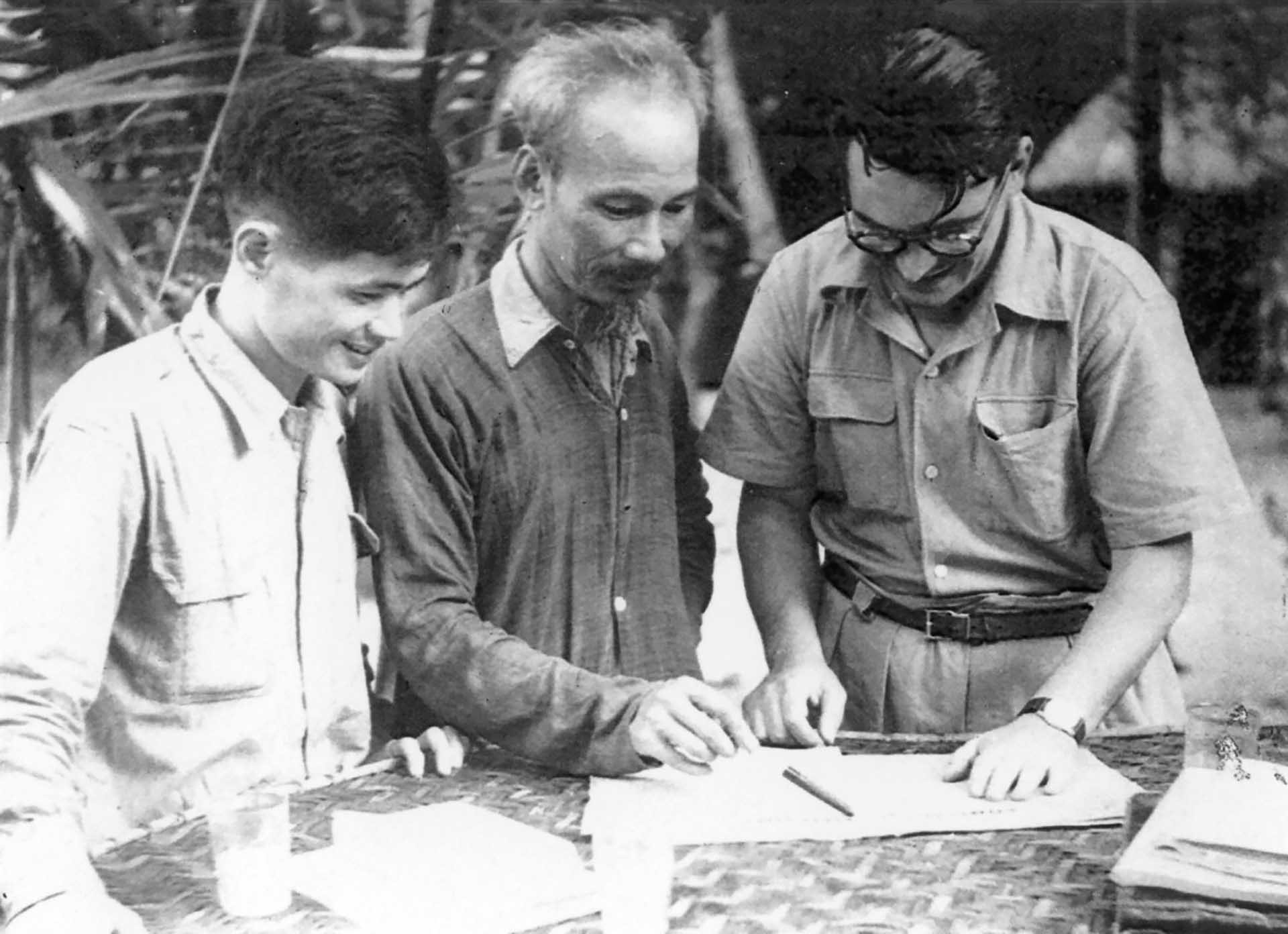 |
| President Ho Chi Minh and journalist Léo Figuères, a member of the French Communist Party in Viet Bac (the Northernmost Vietnam Base). |
Furthermore, there was support from the people of countries fighting for national liberation in Asia, Africa, and Latin America, especially the French colonies and newly independent nations. Most French and American people also sympathized and supported our people’s resistance. The French people’s movement demanding the French government to end the “dirty war” in Vietnam developed rapidly and strongly, prompting the formation of a broad global people’s front in solidarity with the Vietnamese people. The content and forms of struggle were diverse: protests demanding an end to the war, strikes halting production, unloading weapons and war materials bound for Indochina, dumping weapons into the sea…
We will always remember the image of Algerian dockworkers refusing to load weapons onto ships bound for Vietnam, or the image of Raymonde Dien lying across railway tracks to block trains carrying supplies for French troops in Vietnam, or Henri Martin raising the flag of resistance among the French navy ranks. Comrade Leo Figuères, a member of the French Communist Party’s Central Committee, was a French parliamentarian who wrote powerful articles published in French newspapers. We will also never forget French writer and journalist Madeleine Riffaud, with famous reports praising the courageous spirit of oppressed nations rising up for independence, freedom, and the right to live...
History lessons
First is the lesson on harnessing the power of the nation alongside the power of the times. During the struggle for national salvation, President Ho Chi Minh deeply understood the immense strength of the global liberation movement, making our country’s revolution an integral part of the world revolution. President Ho Chi Minh affirmed that the Vietnamese people’s resistance to protect independence, freedom and peace restoration against the invasion of the French colonialists was a part of the world’s common struggle for peace, national independence, democracy, and social progress. Thanks to this, from the early days of the Vietnamese Revolution, we were able to combine the nation's strength with the strength of the times, domestic strength with international strength, creating a great composite strength to achieve victory.
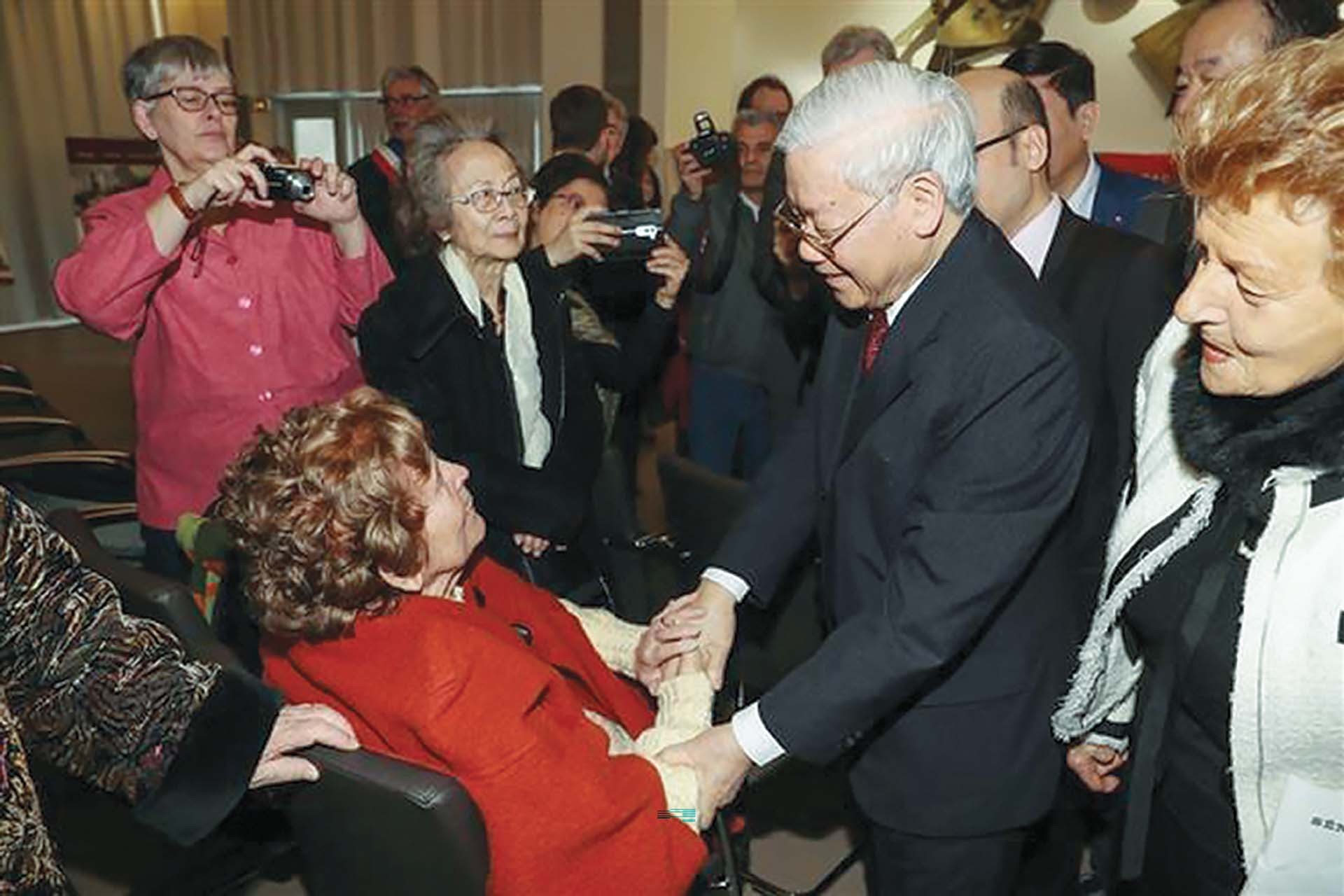 |
| General Secretary Nguyen Phu Trong met Ms. Raymonde Dien at Choisy - Le - Roi City Hall on the occasion of his official visit to the French Republic, March 26, 2018. |
Second is the lesson on international solidarity. Our people considered international support and solidarity as a significant contribution to our struggle and viewed Vietnam’s victory as a positive contribution to the common victory of the world’s people. Throughout the prolonged struggle, our Party and President Ho Chi Minh regularly engaged in international advocacy, enlisting friendship, sympathy, and support from the French people and the people of colonial countries, especially the people of the Soviet Union, China, and India. They frequently condemned the crimes of French colonial imperialism and exploitation and introduced our nation’s struggle for independence. This made the world understand the steadfastness of the Vietnamese people in maintaining an independent, self-reliant, and self-determined path while highly valuing international solidarity.
At the same time, under the sound leadership of our Party and President Ho Chi Minh, the Vietnamese people regularly participated in the collective struggle of international democratic organizations. In 1949, Vietnam was one of the founding countries of the World Peace Council, sending 11 delegates to the founding congress. In 1950, despite the challenging conditions of the resistance, we gathered nearly 6 million signatures to support the Stockholm Peace Appeal on the absolute banning of nuclear weapons. The people of Vietnam regularly expressed their support and solidarity with liberation struggles worldwide (such as the Indonesian people’s fight against Dutch colonialism, the Korean people’s resistance against the United States, liberation movements in French colonial territories, and the struggle against US imperialism by the people of Guatemala).
Third, it’s the lesson on the seamless coordination among party diplomacy, state diplomacy and people-to-people diplomacy. Under the direct leadership of the Party and President Ho Chi Minh, people-to-people diplomacy worked closely to support party diplomacy and state diplomacy in implementing the Party’s tasks, guidelines, and policies.
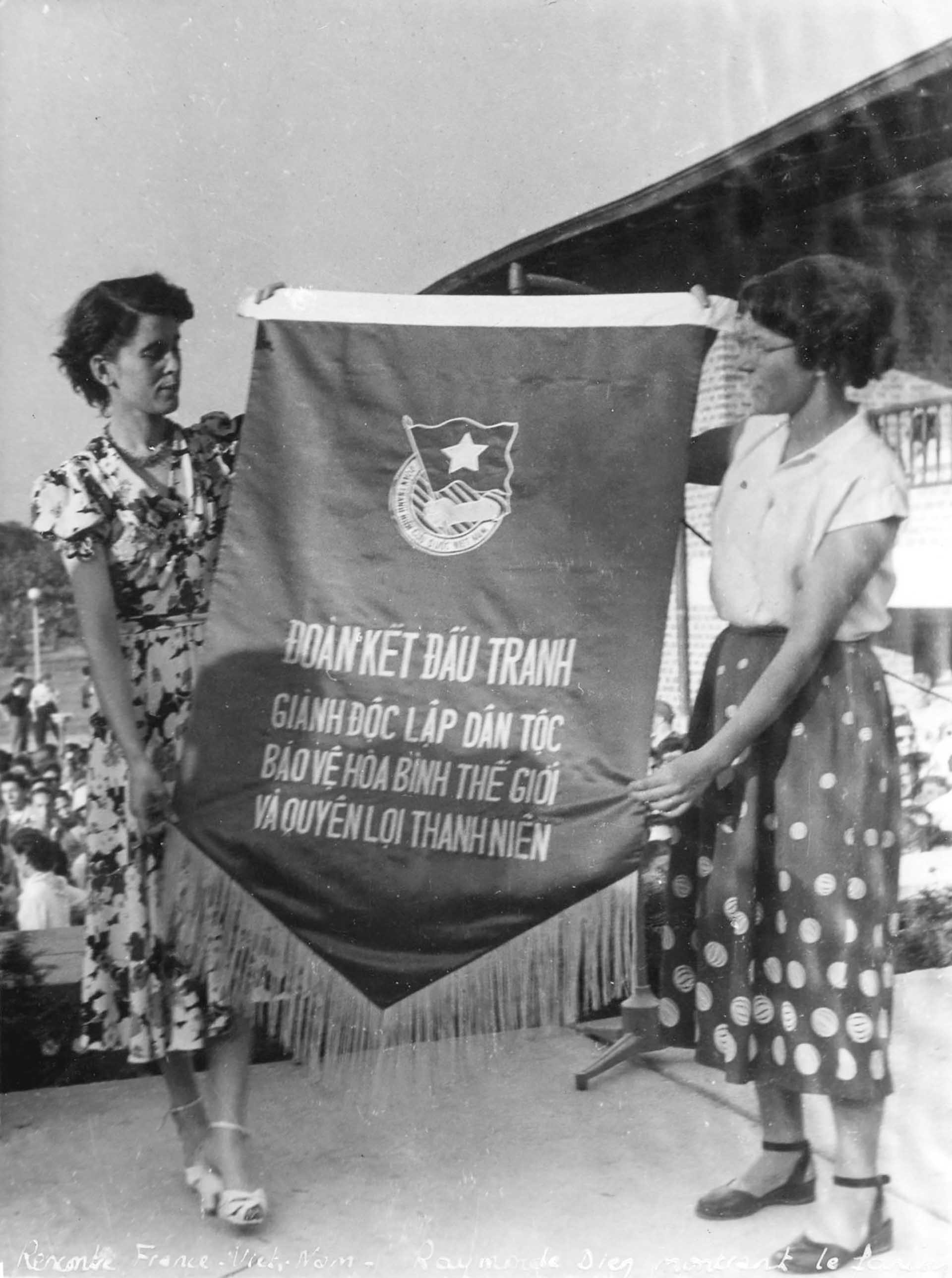 |
| TFrench youth supported Vietnam, protesting the war, 1954. |
At that time, people-to-people diplomacy was not solely the responsibility of people’s organizations such as the Fatherland Front, Vietnam’s World Peace Committee, Vietnam’s Asian Solidarity Committee, the Vietnamese Workers’ Rescue Committee, or the Vietnam Women’s Union. It was the common task of the entire Party, military, and people. The target audience for international mobilization at that time included not only people’s organizations and movements but also political parties, governments, and the media. It was through these synchronized efforts that the world came to understand Vietnam better, and the righteous flag raised by our Party and Uncle Ho led to more activities of solidarity and support for Vietnam’s righteous struggle.
Looking back 70 years of the significant contributions of people-to-people diplomacy o the victory of Dien Bien Phu in May 1954 and the signing of the Geneva Agreement in 1954, every cadre working in people-to-people diplomacy of the Vietnam Union of Friendship Organizations and people’s organizations today feels even prouder of our glorious history and the immense contributions of our forefathers’ generations. This pushes us to strive even harder to be worthy of that glorious history.












